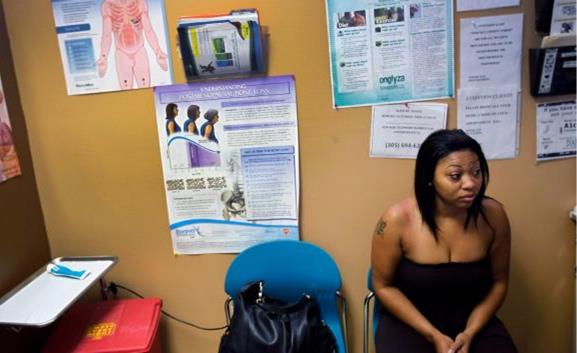>> It’s that time of year again to re-enroll in health insurance — and many Americans are wondering what healthcare will cover this year.
It’s that time of year again to re-enroll in health insurance — and many Americans are wondering what healthcare will cover this year.
Will insurance cover birth control pills? If you receive coverage through the >>Health Insurance Marketplace , then yes. But if your employer is a nonprofit affiliated with a religious organization — like a school or a hospital — then your access to birth control pills depends on the Supreme Court.
Under the Affordable Care Act, contraception is considered an essential part of women’s preventative health coverage. However, exceptions to the act are already in place. Religious employers (churches and houses of worship) are already exempt from providing contraceptive coverage. Moreover, in 2014, religious for-profit companies—namely Hobby Lobby—were granted the ability to “opt-out” of contraceptive coverage thanks to a >>5-4 Supreme Court ruling.
This new case involves religiously affiliated nonprofits and whether they should be compelled to provide contraceptive coverage by a law that is counter to their religious beliefs. One of the organizations represented is the Little Sisters of the Poor, >>an order of nuns who have become the public face of the lawsuit. Nuns, however, are not the only women employed by the order: they run nursing homes across the country.
In order for a non-profit like the Little Sisters of the Poor to opt-out of mandatory coverage of contraception for women, they would need to do a little bit of paperwork. And by a little, I mean a little; it’s a two-page form explaining who they are and why they are requesting the exemption. The lawyers are calling this a “ >>burden .”
And while seven out of eight federal appeals courts have ruled against the nonprofit groups, the >>Eighth Circuit Court of Appeals ruled having to fill out the paperwork a “substantial burden on their exercise of religious freedom” and stated it was a violation of the Religious Freedom Restoration Act of 1993.
So now it is going to the Supreme Court.
Women’s rights advocates have come out swinging. Feminist Majority President Eleanor Smeal told >>Ms. Magazine , “these cases are about sex discrimination and whether or not religion—in the United States—can still be used as a cover to discriminate against women.”
American Civil Liberties Union Lawyer Louise Melling >>similarly argued , “If the court rules in favor of the employers in these cases, women will lose a benefit guaranteed by law and will literally be paying for their employers’ beliefs.”
The Affordable Care Act, when it added contraception as a mandated preventative service for women that would be covered without copay, demonstrated a commitment to women’s health that was a necessary and better-late-than-never corrective. Birth control means better outcomes for women across the board — planned pregnancies, >>fewer abortions , and treatment for the >>many other reasons for which women take birth control.
The last time a case like this went in front of the Supreme Court, women lost out to corporate interests and discrimination in a 5-4 vote. I don’t love those odds.

There are no comments
Add yours